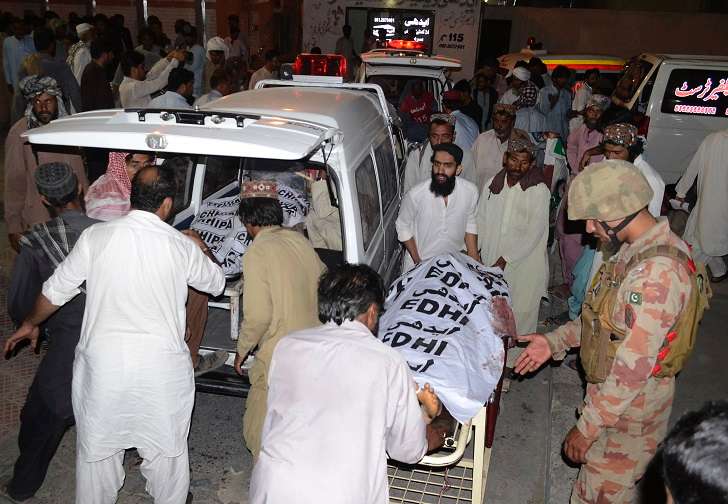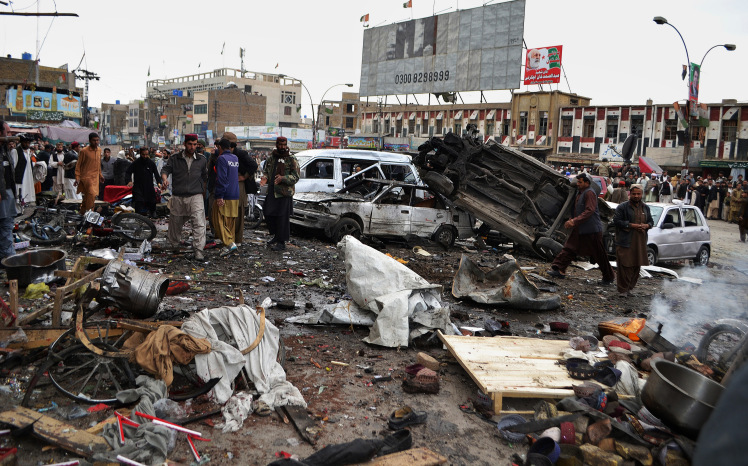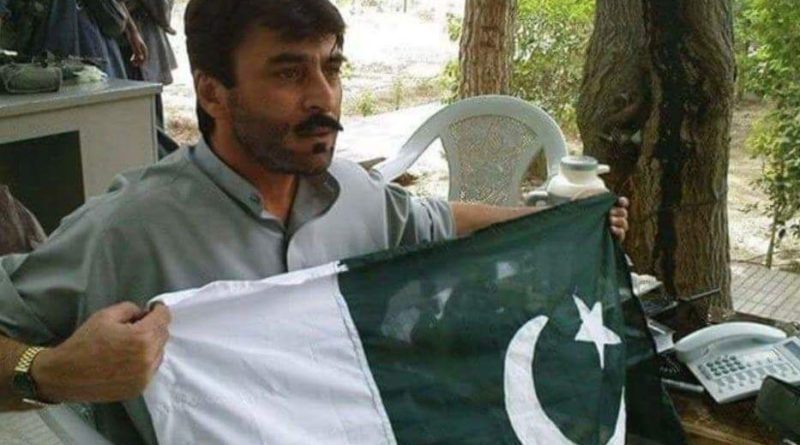- Sponsored -
Pakistan twin suicide bomb blasts: 133 killed, over 200 injured

Ahead of the general elections on July 25, security concerns are being raised as two separate bombings targeting political rallies in Pakistan in which at least 133 people, including a top nationalist leader, were killed and over 200 were injured. The blasts took place on Friday, July 13.
- Sponsored -
A suicide bomber detonated in the middle of a gathering of the Balochistan Awami Party in Mastung town, close to the provincial capital of Quetta, reportedly killing 128 people, including party leader Siraj Raisani, and wounding some 270 more.
“Human remains and red bloody pieces of flesh were littered everywhere in the compound. Injured people were crying in pain and fear,” said local journalist Attah Ullah.
One political worker, Salam Baloch, said he heard a “deafening blast” and saw a “thick grey ball of fire and smoke”.
“People put… bodies and the injured in rickshaws and other vehicles and rushed them to hospital before rescue officials arrived,” he added.

The meeting was organised by Raisani, a candidate in elections to the Balochistan assembly and the younger brother of former Chief Minister Aslam Raisani. He succumbed to his injuries while being shifted to Quetta.
Provincial Home Minister Agha Umar Bangulzai told the media the death toll has “risen to 128”. Officials said 20kg of explosives and ball bearings were used in the attack.
The Islamic State claimed responsibility for the attack through its Amaq agency, saying it was carried out by a Pakistani militant. The terror group has carried out several suicide bombings in Balochistan.
Siraj Raisani had been chief of the secular Balochistan Muttahida Mahaz (BMM), formed by Ghous Bakhsh Raisani in the 1970s, till June. He recently merged the BMM with the newly formed BAP.
Also Read: Former Pakistan PM Nawaz Sharif and daughter Maryam arrested on return
The attack in Mastung came hours after five people were killed and 39 more injured when a bomb hidden in a motorcycle went off near a rally by Muttahida Majlis-e-Amal (MMA) candidate Akram Khan Durrani at Bannu in northwestern Khyber-Paktunkhwa province.
Durrani survived the attack, police said, and no group claimed responsibility. Durrani, a former chief minister who is contesting against Pakistan Tehreek-e-Insaaf chief Imran Khan, said he would continue his campaign despite threats.
In a video message, Durrani said this was the second attack that targetted him. “We are intimated that there are threats but we remain unaware about the forces that have threatened us. There were media reports that I am unsafe, I would like to ask media if they know about the threats, then please reveal the identity of those behind the threats,” he said.
Condemning the attack on Durrani, caretaker interior minister Azam Khan said the interim government will not allow the polls to be sabotaged. “Extremist elements are trying to disrupt the election process. We will not be deterred by militants,” he said.

The army chief expressed his grief over the loss of precious lives in the incident, a tweet of the Director General Inter Services Public Relations (ISPR) Maj Gen Asif Ghafoor said.
COAS condemns heinous terrorist attk in Mashtung. Grieved on loss of precious lives. Pak lost a highly devoted & capable politician Siraj Raisani. Attempts of inimical forces to derail important democratic activity shall not succeed. United we all Pakistanis shall IA defeat them.
— Maj Gen Asif Ghafoor (@OfficialDGISPR) July 13, 2018
President Mamnoon Hussain and Prime Minister Nasirul Mulk also condemned the attack in separate statements.

On Tuesday night, a suicide bombing claimed by the Pakistani Taliban targeted a rally by the Awami National Party (ANP) in Peshawar city. ANP leader Haroon Bilour was among the 22 killed.
Following the recent attacks, activists called for authorities to remain vigilant to protect candidates during the final days of the campaign.
“The Pakistani authorities have a duty to protect the rights of all Pakistanis during this election period – their physical security and their ability to express their political views freely, regardless of which party they belong to,” said Omar Waraich, deputy South Asia director at Amnesty International.
The military has warned of security threats in the run-up to the tense election on July 25, and said it will deploy more than 370,000 soldiers on polling day.
Also Read: In ‘post-war’ Afghanistan, children’s lives still scarred by violence and fear
- Sponsored -

